
Namibia, officially the Republic of Namibia, is a country in Southern Africa. Its western border is the Atlantic Ocean. It shares land borders with Angola and Zambia to the north, Botswana to the east and South Africa to the east and south. Although it does not border Zimbabwe, less than 200 metres of the Botswanan right bank of the Zambezi River separates the two countries. Its capital and largest city is Windhoek.

Windhoek is the capital and largest city of Namibia. It is located in central Namibia in the Khomas Highland plateau area, at around 1,700 m (5,600 ft) above sea level, almost exactly at the country's geographical centre. The population of Windhoek, which was 486,169 in 2023, is constantly growing due to a continued migration from other regions in Namibia.
Frederik van Zyl Slabbert GCOB was a South African political analyst, businessman and politician. He is best known for having been the leader of the official opposition – the Progressive Federal Party (PFP) – in the House of Assembly from 1979 to 1986.
Africa Day is the annual commemoration of the foundation of the Organization of African Unity on 25 May 1963. [1] It is celebrated in various countries on the African continent as well as around the world.The organization was transformed into the African Union on 9 July 2002, in Durban, South Africa, but the holiday continues to be celebrated on 25 May.

The Caprivi conflict was an armed conflict between the Namibian government and the Caprivi Liberation Army, a rebel group that waged a brief insurrection in 1999 for the secession of the Caprivi Strip.
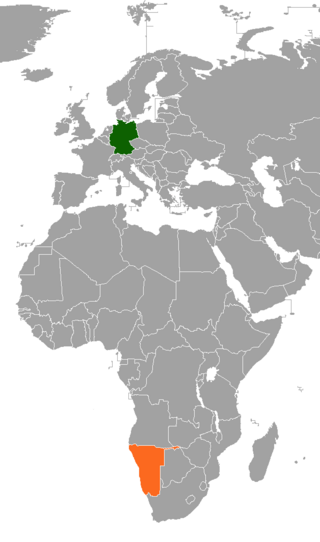
Germany–Namibia relations are the bilateral relationship of Germany and Namibia. This relationship is of particular importance as Namibia was colonized and occupied by the German Empire in the 19th century. There is also a community of approximately 30,000 German Namibians residing in Namibia today. Both nations are members of the United Nations. Culturally, both countries are part of the Germanosphere.
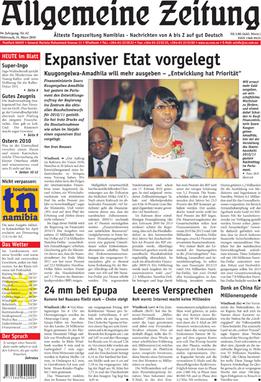
The Allgemeine Zeitung founded in 1916, is the oldest daily newspaper in Namibia and the only German-language daily in Africa to survive World War I.

Stephan Mögle-Stadel is a German educator, journalist and book writer.
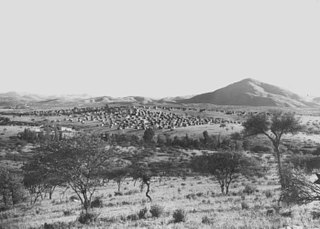
The Old Location was an area segregated for Black residents of Windhoek, the capital of Namibia. It was situated in the area between today's suburbs of Hochland Park and Pioneers Park.

Hans-Erik Staby was a Namibian politician and one of the country's leading architects. A German Namibian, Staby was a member of the National Assembly of Namibia from the Constituent Assembly prior to independence in 1989 until resignation in 1997 with the Democratic Turnhalle Alliance (DTA). Staby died on 30 November 2009 at his home in Windhoek.

German South West Africa was a colony of the German Empire from 1884 until 1915, though Germany did not officially recognise its loss of this territory until the 1919 Treaty of Versailles.
Tjama Tjivikua is a Namibian academic and businessman. He was the Rector of the Polytechnic of Namibia in Windhoek since its inception in 1995. When the institution was renamed into Namibia University of Science and Technology in 2015, Tjivikua continued to lead it, now in the position of vice-chancellor, until March 2019.
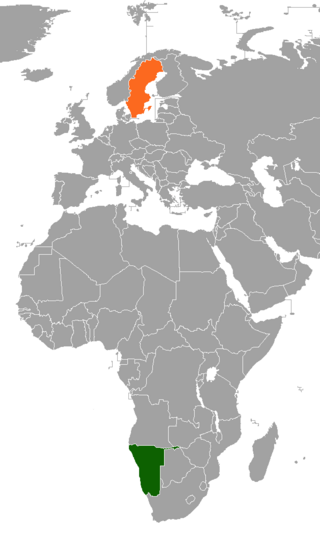
Namibia–Sweden relations refers to the bilateral relations between Namibia and Sweden. Namibia maintains an embassy in Stockholm, while Sweden closed its embassy in Windhoek in 2008. Sweden was a strong supporter of the Namibian independence movement. From Namibia's independence in 1990 until 2007, Sweden was a primary donor of aid to develop Namibia's public sector but, in 2007, development aid began to be scaled back.
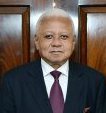
Mohamed Chande Othman is a Tanzanian lawyer and a former Chief Justice of Tanzania.
Yusuf Soalih also called Afa Ajura (1890-2004), was a Ghanaian Islamic scholar, a preacher, political activist, and the founder and leader of a sect in Ghana. Afa Ajura was a proponent of Sunni Islam shunning pre-Islamic pagan practices, and whom some have referred to as a precursor to Wahhabi reformism in Ghana. He established the Anbariyya Islamic Institute in Tamale in the 1940s. He died in Tamale on December 22, 2004. He was succeeded by Saeed Abubakr Zakaria in 2007 as leader of the Anbariyya Sunni Community.

The Independence Memorial Museum is a history museum in Windhoek, the capital of Namibia. It focuses on the anti-colonial resistance and the national liberation movement of Namibia.
The following is a timeline of the history of the city of Windhoek, Namibia.

Ndeutala Angolo, also known as NdeutalaSelma Hishongwa and Ndeutala Angolo Amutenya, is a Namibian writer and political activist.
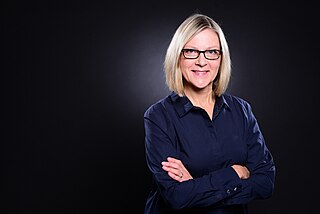
Katja Werthmann is a German ethnologist with a regional focus on West Africa. She is a professor for 'Society, politics and economy of Africa' at the Institute for African Studies at the University of Leipzig. K. Werthmann conducts research in Anglophone and Francophone Africa on the handling of material and symbolic resources in the context of spatial and social mobility in contemporary Africa. She has made contributions to political, economic, religious and urban ethnology. After the Doctorate at the Freie Universität Berlin and the Habilitation at the Johannes Gutenberg University Mainz she taught at universities in Germany, Switzerland (Zürich) and Sweden (Uppsala). Since 2012 she has been a university professor at the University of Leipzig.
Africa–Nordic relations are the current and historical relationships between the African countries and the Nordic countries – Denmark, Finland, Iceland, Norway, and Sweden.














